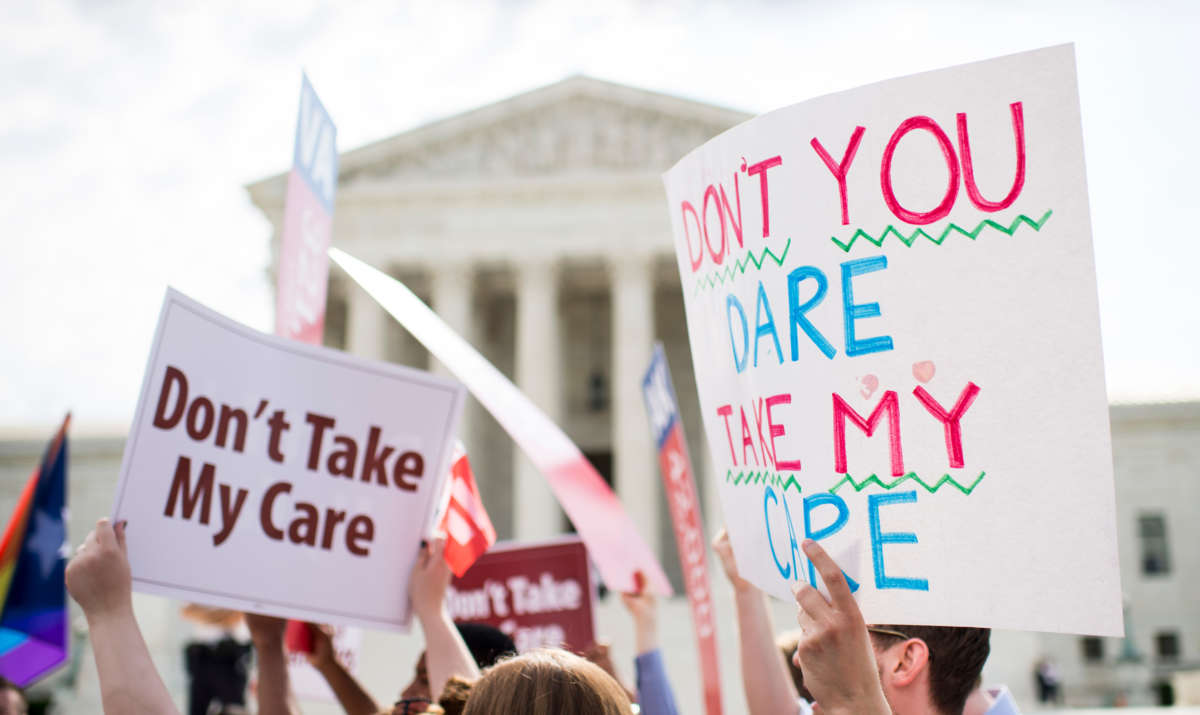Insurance companies are entitled to recoup $12 billion from the federal government in unpaid Obamacare claims, the Supreme Court ruled Monday in an 8-1 vote.
The companies were shielded under the “risk corridor” provision of the Affordable Care Act (ACA), which promised compensation for companies that incurred losses in the marketplaces created by the law.
The original remuneration period lasted three years, but Congressional Republicans capped payments between 2015 and 2017, which the insurers argued was a bait and switch. The court agreed.
“These holdings reflect a principle as old as the nation itself: The government should honor its obligations,” Justice Sonia Sotomayor wrote for the majority.
Justice Samuel Alito cast the lone dissenting vote, calling the taxpayer-funded program a “massive bailout” for companies that “bet unsuccessfully on the success” of the ACA.
GOP efforts to eliminate the program began in 2013, led by Sen Marco Rubio, R-FL. Speaking to then-candidate Donald Trump in a February 2016 debate, Rubio called the fund a “bailout.”
“All these lobbyists you keep talking about, they put a bailout fund in the law that would allow public money to be used — taxpayer money — to bail out companies when they lost money. We led the effort and wiped out that bailout fund,” Rubio, who had been inaccurately using the term for years, said. (Alito called the program a “massive bailout” in his dissenting opinion.)
Congress inserted the risk corridor program into the ACA as a sort of financial equalizer to encourage companies to participate in the law’s insurance exchanges. The move helped get them off the ground while keeping premiums under control. The plan was supposed to pay for itself: Profitable marketplace insurers would pay “user fees,” which would be used to partially compensate unsuccessful companies.
But insurers took big hits in the marketplaces, and soon the fund was paying out more than it made. In 2014, $362 million in user fees had to cover $2.87 billion in losses — a $2.5 billion deficit.
Republicans did not want taxpayers to subsidize a law they had tried to repeal for years. In an effort to starve Obamacare, the GOP blocked the Department of Health and Human Services (HHS) from funding the risk corridors. The companies left the exchanges, and rates went up, destabilizing the marketplace. By 2016, the year the ACA was set to close the program, risk corridors faced a $12 billion shortfall. Rubio said the 2014 GOP bill was “a big part of ending Obamacare for good.”
Insurers filed lawsuits against the government, claiming the GOP had not eliminated risk corridors — only restricted payments — and that they were still owed billions. The Trump administration argued that HHS did not have to pay, but the high court sided with the companies, ruling that the risk corridor program was “a rare money-mandating obligation” that Congress created but could not repeal.
The ruling is not expected to have much of an effect on Obamacare, which the Trump administration has targeted through its support of a red-state lawsuit challenging the constitutionality of the law’s individual mandate. The high court will hear the case this fall, likely in the weeks leading up to the election.
“The federal government cannot order private citizens to purchase subpar insurance that they don’t want, and I look forward to finally settling the matter before the U.S. Supreme Court,” Texas Attorney General Ken Paxton said.
We have 10 days to raise $50,000 — we’re counting on your support!
For those who care about justice, liberation and even the very survival of our species, we must remember our power to take action.
We won’t pretend it’s the only thing you can or should do, but one small step is to pitch in to support Truthout — as one of the last remaining truly independent, nonprofit, reader-funded news platforms, your gift will help keep the facts flowing freely.
